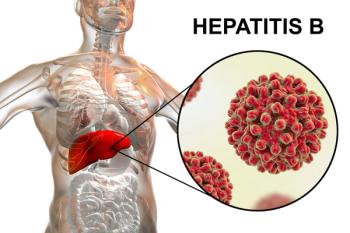
Bivalent mRNA COVID-19 Booster Associated With Significantly Higher Antibody Response
Moderna’s bivalent mRNA COVID-19 booster reached prespecified superiority and noninferiority criteria against multiple strains of SARS-CoV-2.
Moderna’s bivalent mRNA COVID-19 booster vaccine targeting the Omicron BA.1 SARS-CoV-2 variant demonstrated a significantly higher antibody response compared with the original vaccine and is not associated with any new safety concerns. This is according to research1 presented at IDWeek 2022, held October 19 through 23, 2022, in Washington, D.C.
Data from an ongoing phase 2/3 clinical trial evaluating the safety and immunogenicity of this vaccine in adults were used to support the emergency use authorization of Moderna’s bivalent boosters by the FDA. These vaccines are available to individuals aged 6 years and older who have completed a primary vaccine series or received a previous booster dose in the previous 2 months. The bivalent booster “produced the same level of immune response”2 in older and younger adults.
Study investigators compared neutralizing antibody geometric mean titers (GMTs) in 2 cohorts of participants: 334 who received mRNA-1273.214—containing 25 µg each of ancestral Wuhan-Hu-1 and omicron BA.1 spike mRNAs—and 260 who received mRNA-1273. Those in the bivalent booster group had elevated neutralizing antibody GMTs (2372.4 vs 1473.5); the bivalent booster also met prespecified superiority criteria against Omicron BA.1 and prespecified noninferiority criteria against ancestral SARS-CoV-2.
mRNA-1273.214 also demonstrated higher GMT against Omicron BA.4 and BA.5 subvariants, the researchers noted, as well as numerically higher binding antibody responses against alpha, beta, gamma, delta, and omicron strains.
“The Omicron variants have key mutations when compared to the original virus and raised the question about the need to update COVID-19 vaccines by including Omicron sequences in the vaccine,” said Spyros Chalkias, senior medical director of clinical development at Moderna, in a press release.2 “Our results indicate that the Omicron-containing bivalent booster vaccine has a safety profile that is similar to the original vaccine, [including] enhanced antibody responses against the variants.”
Although the current trial focused on an adult population, investigators indicated that the results are important for informing vaccine development for other populations, including children. Data from the trial were included in the company’s EUA application for children and adolescents aged 6 to 11 years and 12 to 17 years, respectively.
Data also “provide a framework for scientists tackling future variants of the disease,” the press release noted.
Disclosure: Multiple study authors report financial relationships with Moderna. See the study abstract for full details.
References
- Chalkias S, Harper C, Vrbicky K, et al. Safety and immunogenicity of a bivalent omicron-containing booster vaccine against COVID-19. Presented at: IDWeek 2022; October 19-23, 2022; Washington, D.C. Poster LB750.
- Study shows Moderna’s omicron bivalent booster vaccine is safe and induces higher antibody responses than original COVID-19 vaccine. News release. October 20, 2022. Accessed October 20, 2022.
Newsletter
Pharmacy practice is always changing. Stay ahead of the curve with the Drug Topics newsletter and get the latest drug information, industry trends, and patient care tips.























